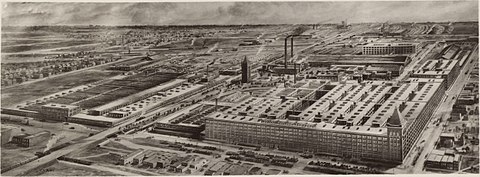|
Edward Francis Leopold BrechEdward Francis Leopold Brech (26 February 1909 – 22 September 2006) was a British management consultant, and author of management theory and practice books, known for his work on the history of management. Life and workBrech was born in Kennington to a Hungarian father, who worked as catering manager, and a Bavarian mother. After grammar school, Brech was selected by the Roman Catholic bishop of Southwark to be educated as priest. At that time there was a pilot scheme, that required a university graduation before entering the church. In 1929 Brech obtained his BA in humanities at the London University, declined priesthood, and continued to study economics at London University obtaining his BA in 1932.[1] At the age of 85 Brech earned his doctorate in British management history through Britain's Open University, where he also was a visiting research fellow. In 2004 he was awarded a higher doctorate (DLitt) for his historical research.[2] Brech started working in 1929 at a fur trader, and became tutor at the German Commercial school in London. In 1939 he joined the management consulting firm Urwick Orr and Partners (now the Urwick Group), after he had started co-operating with Lyndall Urwick. Urwick was in those days one of the most influential management writer in Britain. From 1945 to 1948 they published their most important work, entitled The making of scientific management.[1] Since 1947 Brech was engaged in management training for the British Industry, starting at Urwick-Orr with developing syllabus for a national management training. In 1965 he became founding chief executive of the Construction Industry Training Board (CITB), a government initiative based on the 1964 Industrial Training Act to educate, improve skills and set standards for the construction industry. In 1971 Brech moved into industry, and became chairman of a general engineering plastic assemblies business in Yorkshire. In 1974 he co-founded the Executive Leasing company, one of the first organisation interim management.[1] Since the 1940s he has been researching, publishing, and lecturing on management and its history, and continued to do so after his retirement. Among his best-known works are The Making of Scientific Management, co-authored with Lyndall Urwick in 1940, and The Evolution of Modern Management in Britain 1832–1979, a comprehensive five-volume history published in 2002. WorkBrech and his friend Peter Drucker had a common believe, that "management was for the good of society, and integrity was its cornerstone."[1] For over 60 years brech developed his ideas about management into training programmes and textbooks. Making of Scientific Management, 1945In 1945, Urwick and Brech made their most lasting contribution to management literature with the publication of his three-volume Making of Scientific Management. It was the first treatise to present a clear and focused discussion of the development and applications of management science. It included a comprehensive number of profiles of leading proponents of management theory, from early pioneers such as Charles Babbage and Frederick Winslow Taylor, to those such as Seebohm Rowntree and Mary Parker Follett who innovated and refined their concepts. All aimed to bring '"adequate intelligence" to the control of the forces released by a mechanised economy' to bring the logical standards of science to bear on business practice. It also dealt with early contributions to understanding the scientific approach to control in industry. A long background of scientific management practices had previously been largely unknown before publication of these volumes. The study included a view of methods of control at the famous Boulton and Watt Foundry, of Robert Owen's approach to personnel management, and of commercial management training. Vol 2. Management in British Industry, 1946The second part of "The making of scientific management," entitled "Management in British Industry" described management in Britain from the Industrial Revolution to the 20th century developments of scientific management and human factors in management. Beside general chapters, there were specific chapters on the work of the Boulton and Watt foundry; on Robert Owen; on J. Slater Lewis, and on F.W. Taylor.[3] Vol 3. The Hawthorne Investigations, 1948In the preface of "The making of scientific management: Vol 3. The Hawthorne Investigations," Elton Mayo (1947) acknowledged, that: 
British Management Writings Before the First World War, 2003In his "British Management Writings Before the First World War" Brech (2003) summarised the raise of British approaches to management as follows:
Selected publications
References
External links
|
Portal di Ensiklopedia Dunia